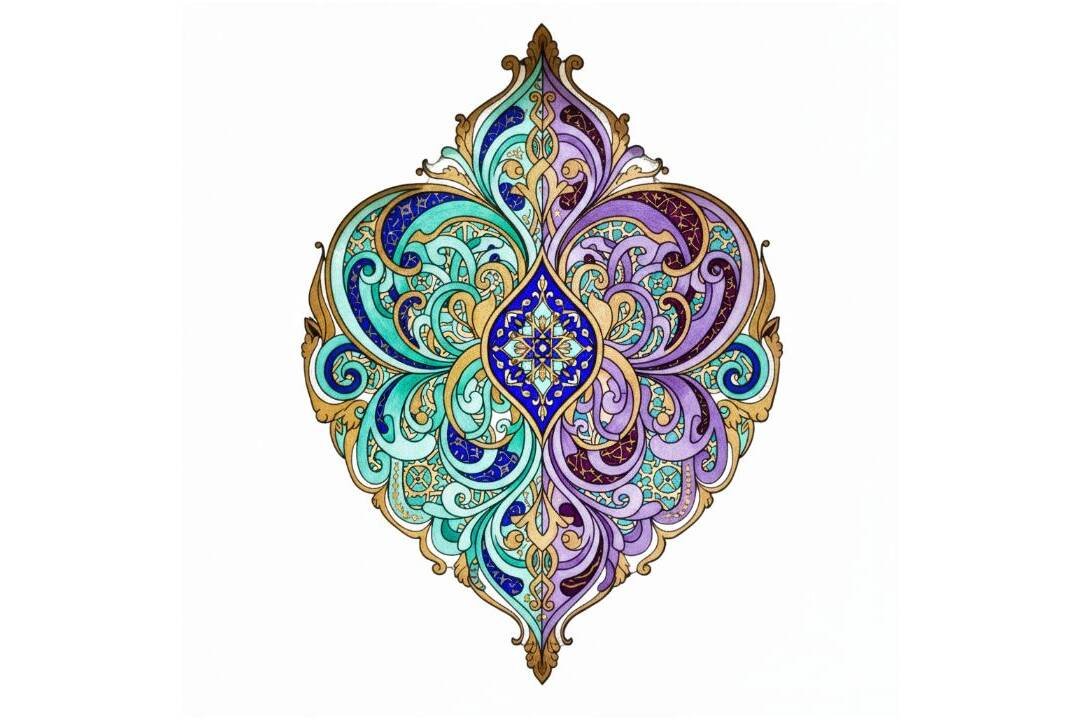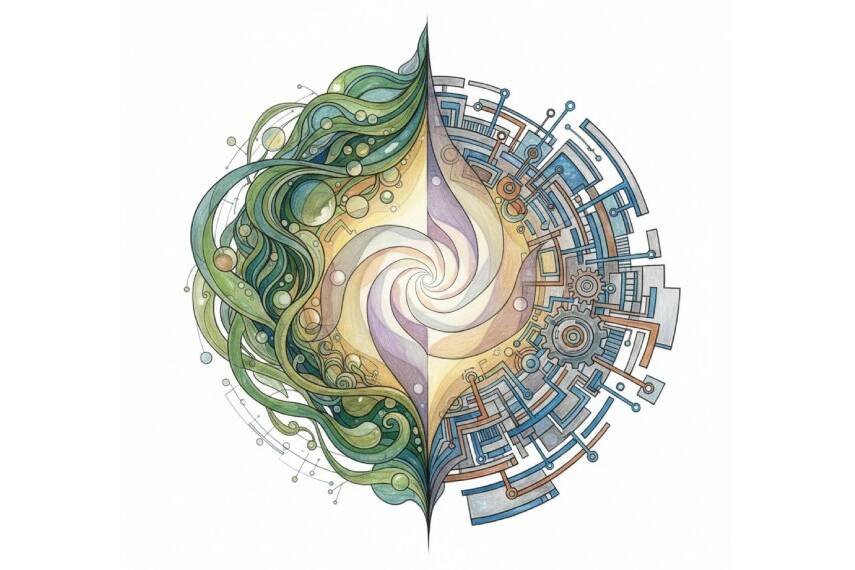Exploring the Qur’anic origins of educational tech while confronting cultural bias in AI shaping global knowledge through Western-centric value systems.
By Mujeeb Jaihoon
The Pen as Revelation’s Ally
The Holy Qur’an, a seminal religious text, positions the ‘Pen’ as the first non-living object mentioned in revelation. This prioritization highlights the pivotal role of technology—represented here by the pen—in advancing education for the benefit of humankind.
Read, in the name of your Lord who created.
Created man from a clinging clot.
Read! And your Lord is the Most Generous.
Who taught by the pen.
Taught man that which he did not know. (Ch 96, Verses 1-5)
It is noteworthy that in this sacred introduction, the Creator did not reference celestial bodies, vehicles, or the vastness of the heavens and earth. Rather, a simple and profound instrument was chosen: the Pen. A deeper reading of the verses reveals that the Pen is among the divine blessings through which the Almighty made the process of teaching possible.
The pen symbolizes the earliest form of educational technology. It paved the way for further advancements including the compilation of texts, the invention of the printing press, calculators, laboratory tools, overhead projectors, audio-visual devices, television, and, eventually, the internet. Beyond instruction, the pen is also a medium of creativity—used for composing poetry, chronicling historical events, recording scientific discoveries, and artistic expression.
The Qur’anic command “Iqra’” (Read) marked a revolutionary shift in educational philosophy by connecting the pursuit of knowledge to the remembrance of the Creator, intended to serve the collective good.
Resisting Cultural Bias in Algorithmic Knowledge
Contemporary society has progressed from a machine-based economy to a knowledge-based one. In this context, the pursuit of information is universal. However, the challenge lies not in accessing knowledge, but in navigating the overwhelming influx of data.
The internet now offers unprecedented access to knowledge, and increasingly, AI-driven chatbots have become the gatekeepers of that information. Unlike traditional search engines that list countless results, these conversational agents serve tailored responses in seconds. Yet, even this convenience comes at a cost.
As AI chatbots increasingly mediate our access to knowledge, a new challenge emerges: the cultural lens through which these systems operate. Many of today’s leading AI models are developed within Western contexts, often reflecting secular, individualistic, and liberal value frameworks. While these may align with certain global norms, they can inadvertently marginalize or misrepresent perspectives rooted in Asian or Islamic worldviews.
This cultural asymmetry becomes especially problematic in educational settings, where learners may unknowingly absorb values that conflict with their own traditions. For instance, ethical reasoning, gender roles, or even historical narratives presented by AI may subtly diverge from those upheld in Islamic or Eastern philosophies. In such cases, the chatbot does not merely inform—it shapes.
Loyal to Intellectual Traditions
In this era of rapid technological advancement, there is a pressing need to preserve cultural and intellectual identity. Amidst the allure of novel and ‘cool’ technological innovations, learners must remain rooted in their values and intellectual heritage.
A relevant reflection comes from Carly Fiorina, former CEO of HP-Compaq, who in a public address stated: “This (Islamic) civilization was driven more than anything by invention… Its mathematicians created the algebra and algorithms that would enable the building of computers… Its astronomers looked into the heavens… Its writers created thousands of stories…”
She went on to credit Islamic civilization (800–1600 CE) with foundational contributions to fields such as engineering, encryption, and astronomy, and emphasized the lasting impact of this legacy on modern technological industries.
This testimony serves as a powerful reminder of the rich heritage from which many current systems of knowledge draw inspiration. It is therefore imperative for students and educators to remain loyal to their intellectual traditions while navigating the modern educational landscape. Seekers of knowledge are, after all, heirs to a legacy of inquiry and innovation.
Reference: https://www.hp.com/hpinfo/execteam/speeches/fiorina/minnesota01.html
***
(The writer explores faith, culture, and society in the modern Muslim world. More at www.jaihoon.com)
Mujeeb Jaihoon
Mujeeb Jaihoon, reputed Indian author, explores themes of universal love, deeply embedded in a disruptive spiritual worldview.
Related Posts
Feb 26 2026
Perfection is His Sole Privilege
Surrender "should have" fantasies to embrace the divine perfection and wisdom…
Feb 25 2026
Feathers and Bars: The Immortal Inmate
Jaihoon explores the mystical paradox of the ageless, vibrant soul trapped…
Feb 11 2026
Of Wounds and Wonders: Seeking the Divine Signature in Love and Pain
To love is to know. Whether through nature or machines, seekers find the…
Feb 10 2026
ഇതാണൊ ഇസ്ലാം ?
Mujeeb Jaihoon's controversial take on some of the double standards prevalent…


